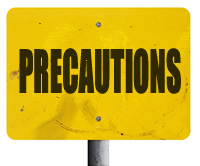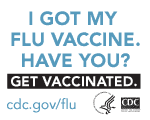What Precautions or Contraindications Exist for Rabies Vaccination?

Immunosuppression
Immunosuppressive agents should not be administered during postexposure therapy unless essential for the treatment of other conditions. When postexposure prophylaxis is administered to an immunosuppressed person, it is especially important that a serum sample be tested for rabies antibody to ensure that an acceptable antibody response has developed.
Corticosteroids, other immunosuppressive agents, anti-malarials, and immunosuppressive illnesses can interfere with the development of active immunity after vaccination. For persons with immunosuppression, preexposure prophylaxis should be administered with the awareness that the immune response might be inadequate.
Patients who are immunosuppressed by disease or medications should postpone preexposure vaccinations and consider avoiding activities for which rabies preexposure prophylaxis is indicated. When this course is not possible, immunosuppressed persons who are at risk for rabies should be vaccinated by the IM route and their antibody titers checked. Failure to seroconvert after the third dose should be managed in consultation with their physician and appropriate public health officials.
Pregnancy
Because of the potential consequences of inadequately treated rabies exposure, pregnancy is not considered a contraindication to postexposure prophylaxis. Several studies have shown no indication of increased incidence of abortion, premature births or fetal abnormalities associated with rabies vaccination. If the risk of exposure to rabies is substantial, preexposure prophylaxis might also be indicated during pregnancy. Rabies exposure or diagnosis of rabies in the mother is not an indication for pregnancy termination.
Allergies
Persons who have a history of serious hypersensitivity to components of rabies vaccine should be revaccinated with caution (see Management of Adverse Reactions). Optimally the same vaccine (either HDCV or PCEC) should be used throughout the vaccination series. However, if severe allergic reactions occur it may be advisable to switch to the alternate vaccine to complete the series.
For assistance with problems or questions about rabies prophylaxis, contact your local or state health department. If local or state health department personnel are unavailable, call the Division of Viral and Rickettsial Diseases, National Center for Zoonotic, Vector-Borne and Enteric Diseases, CDC at (404) 639-1050 during working hours or (404) 639-2888 during nights, weekends, and holidays.
Content Source: National Center for Zoonotic, Vector-Borne, & Enteric Diseases (ZVED)

